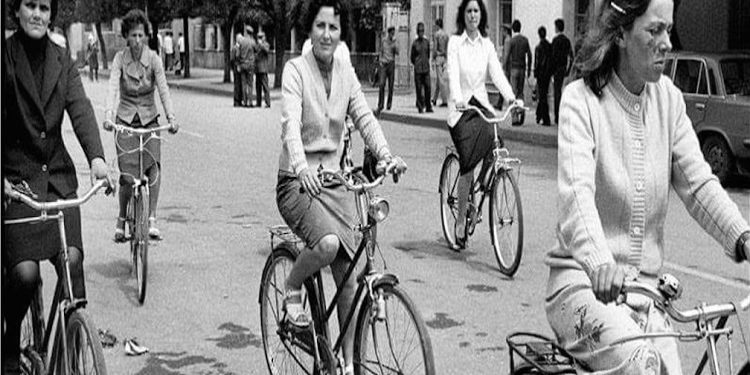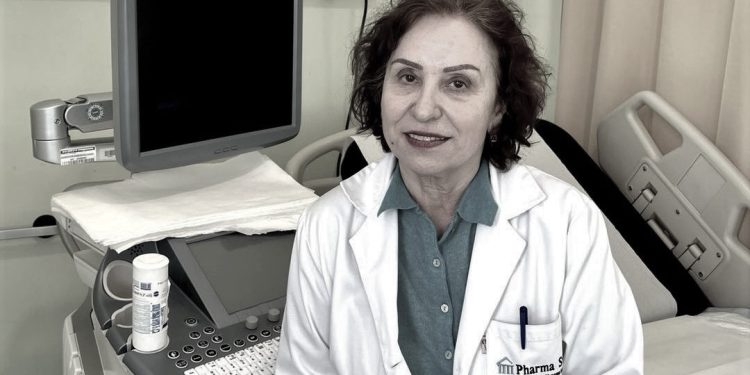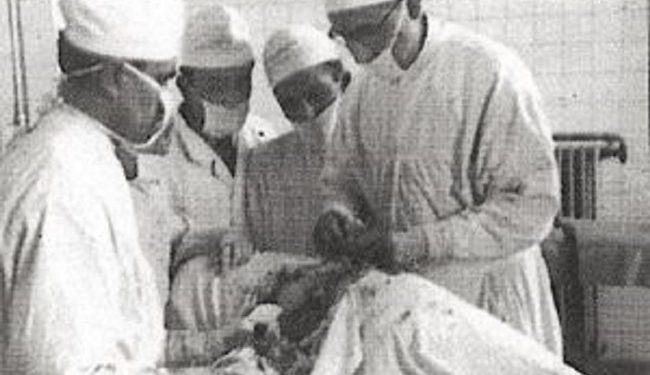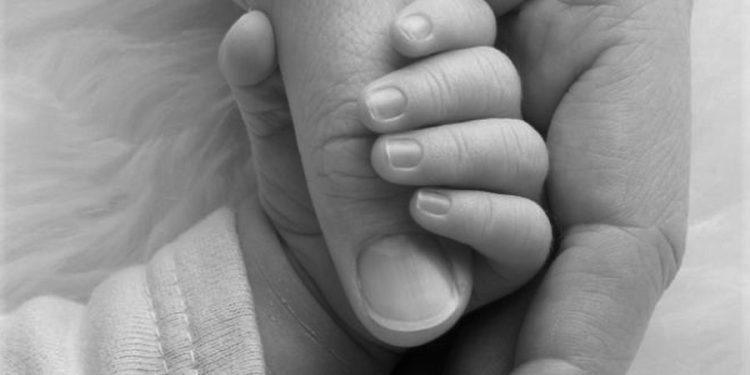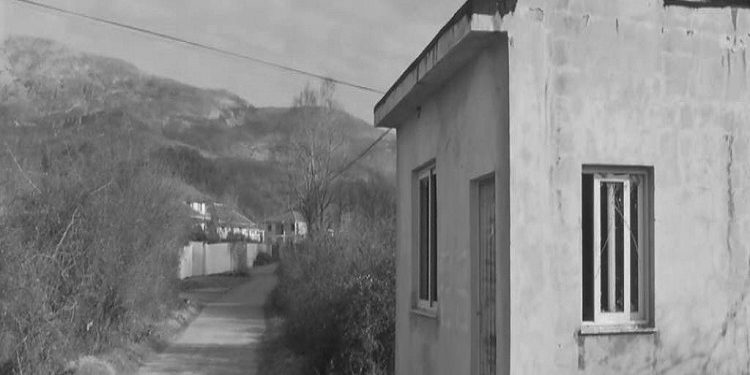By Donika Shanaj
-“Salvation, which did not save…! A chilling but true story of a doctor who lived through those bitter times…”!
Memorie.al / In the 80s, when I graduated from the Faculty of Medicine in Tirana, I was appointed a doctor in the area of Oblica in the district of Shkodra and I had the task of covering the health service in Muriqan, which is the village on the border with Mali e Zi, a very beautiful village by the river Buna, which lay on a hill, as well as the villages in the mountainous part behind the mountain of Taraboshi, which were the villages of Villgar, Obot, Vallas and Velaj. To go to Muriqan, I had to learn to ride a bicycle, as the bus that took the farm workers went to Oblika, and then it was over 1 hour on foot.
The first day I started work, I met the nurse and the midwife who were going to work with me, who were working in the village with a bag in their hand carrying some syringes that were sterilized at the Health Center of Oblica, the nurse gave vaccines and injections to the sick, while the midwife attended to pregnant women and children aged 0-1 years.
After I asked them where the ambulance is and they told me; we don’t have an ambulance, but when it rains, we can stay at the warehouses of the cooperative, I felt very bad, because apart from the difficulties of coming by bike from Shkodra to Muriqan, which was approximately from my house in Shkodra, about 15 km. coming and going as much, I didn’t even have a place to visit the sick.
After many interventions in the People’s Council of the area, since the Secretary of the Council was the Director of the School of Muriqani, Mr. Bari Shullani (who has passed away) and I want to mention him, as he was an educator of the area, who helped me a lot in my work mine. He emptied the kindergarten, which was a separate building with two rooms and one bathroom, and there we set up the Muriqan Village Health Center, which began to function normally.
I have many memories of working in that area, as I started to train as a doctor there, but in my memory during those very difficult years, even though that area is prosperous, poverty was present everywhere and at every step you took.
The villages had nurseries because women after giving birth only had 45 days off, then they sent the children to the nursery and worked in the agricultural cooperative, which had serious consequences for the children, because they were legally deprived of breastfeeding, after 45 days, mothers who worked all day in the fields, could not breastfeed their children and they were fed artificially, with cow’s milk and rice juice.
But this caused these children to become dystrophic (very underweight) and most of them ended up in the Dystrophic Hospital, where after many diseases, some of them died there. This was also the reason that the mortality of children, 0-1 years old in Albania, was the highest in Europe.
I will never forget the pale faces of those children who were suffering so much and we were struggling to cure them with penicillin while they were not getting proper nutrition. Even after they were 1 year old, I was obliged to issue prescriptions to the children, 1 to 3 years old, to eat wheat bread, because without a prescription they could not even get wheat bread, but only corn bread, which was not even pierced by a bullet, and not to feed the child 1 to 3 years old.
But what I am going to tell you now is a painful event that has remained in my memory and brings to my mind every day.
It was summer and I was returning from work by bicycle at around 4:00 p.m., I met the midwife, who told me that in the village of Vallas, a woman had given birth to a premature baby weighing 1700 grams. It is understood that the child should be sent to the Prematurity Hospital in Shkodër, which was run by the respected doctor, Dr. Xhavit Gjylbegu. I tell the midwife to immediately call the Prematurity Hospital ambulance and send them there.
The midwife told me that the family refused to send him to Prematurity. I was obliged to do my best for the child to go and receive the qualified service at the relevant hospital, but since the family members did not accept, I had to go to the child’s house myself, to convince them. Then I took the nurse and we went together and, after walking for 2 hours, (because the car didn’t go to the village), there was no car road and when we reached the village, it was dark and night.
Their house was just one room with a fireplace and two stilts and a double wooden bed in a corner of the house, where misery sat cross-legged. The woman who had given birth that day lay pale, weak and helpless, perhaps even malnourished.
There in the room was the husband and an 8-year-old child. After I saw the woman and the child, who was very small, we weighed her and it was a fixed 1,700 gr., we told her that we should both send them to the hospital, the woman to the maternity ward and the child to Prematurity.
The family members categorically did not accept, as she had given birth to 4 other premature children, all four of whom had died in the hospital. I will never forget how the young mother begged me not to take her child and take her to the hospital, as she did not believe that the child would survive if it went into prematurity.
– “I have given four children to the hospital – he told me…! This one will stay here, I will nurse him, if God willed, he will save him, if not, and he will go where the others have gone”!
It is understood that communication became very difficult, but we had to do our duty, send the child where we thought he would receive qualified service, but the child first needed the mother, the breast milk and then the hospital.
Even after several hours of discussion, the mother did not decide to accompany the child and almost disobediently, she gave us the child in our hands to take her to the hospital, after we pressured her that the chances for the child would be better in the hospital. .
After we wrapped the baby, I asked the mother: – What name does this baby want?
– “He doesn’t need a name – he said – because this one too will have the fate of others”!
I don’t know why, but I was optimistic that the child would be born and I said: “We will name him Salvation” – and the nurse and I took the child with us.
The husband didn’t come either, but we left them both like two tombstones, which didn’t move, even when we left the house.
It was 2 o’clock in the night when I, the nurse and the child, arrived at the Health Center of Oblika and called the ambulance, which came after 30 minutes and sent the child to prematurity.
I went every 4-5 days to take care of the child at the hospital, but after 3 weeks, the child did not make it. I don’t know if his mother ever went to see him, since he refused to be admitted to the hospital, so that she would be close to him and feed him if possible.
The reason why it stuck in my mind and I don’t forget this case, is that maybe, if we had left him with the mother, the child could have done, what the hospital did, the mother could have done with her love and natural nutrition.
Those were very difficult times, for all the people and for us, who worked in extremely difficult conditions, as much as we could, but still “We could not save the rescue”…! Memorie.al




